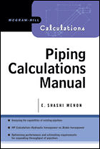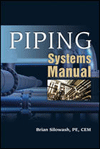Find applicants who earned less pay than your company will pay them

Many PHCP/PVF distributors I consult with told me they previously wasted a lot of valuable and expensive management time because they interviewed job applicants they should not have bothered to interview!
Interviewing applicants who you should not seriously consider squanders PHCP/PVF distributors’ expensive management time and energy.
Here are some tips you can immediately put into action so you and your staff only spend time interviewing job applicants worth your consideration.
Recommendation: Determine if a job applicant is worth interviewing by examining two objective prediction methods: work-related biographical data and pre-employment tests.
Work-related biographical data
First, use job-related biographical data (“bio-data”). See if the applicant has bio-data similar to your best or superstar employees in each job. Important: Only look at work-related bio-data and do not examine non-work-related bio-data. Specifically, you look for bio-data similarities to your best employees in work experiences, types of jobs held, years on each job, education, training and pay.
For example, one PHCP/PVF distributor I consult found out its best sales reps did the following before working at their company: (a) worked in two sales jobs, (b) held each sales job for 3-5 years, (c) earned college degree in science or math major, (d) attended at least four lengthy sales-training seminars, (e) worked while in high school and (f) earned less than they would earn at this company.
So, when this distributor looked at sales-rep applicants’ resumes, they only looked for applicants who had all six bio-data similarities.
At one distribution company I helped make a list of bio-data for its best warehouse workers. Lo-and-behold, its best warehouse workers (a) held 3-5 jobs before working for this company, (b) all their jobs included heavy lifting and using motorized vehicles, e.g., forklifts, and also entering information into simple computer programs, (c) held each job 2-4 years, (d) attended community college, but did not earn an associate’s college degree, (e) worked while attending high school and (f) earned less than this company would pay them.
When this distribution company looked at applications, it immediately looked for applicants who had these same six bio-data as its best warehouse workers.
Note about previous pay: I find applicants love to get a job that pays them more than they previously earned. But, they feel disappointed or unenthused about jobs that will pay them the same or less pay than they previously earned. Find applicants who earned less pay than your company will pay them.
Pre-employment tests
If an applicant possesses bio-data similar to your best employees in a job, then you should have the applicant take pre-employment tests. Such tests quickly and scientifically can tell you if an applicant has same work-related qualities as your best employees in each job. And that is exactly what you want to know, isn’t it?
Important recommendation: Before testing applicants, you should custom-tailor the pre-employment tests by doing a benchmarking study.
How? Have your best employees in each job take the pre-employment tests. Then, use the test scores registered by your best employees as the “benchmark” test scores. When an applicant gets the same test scores as your benchmark test scores, then that applicant is worth interviewing. But, if an applicant’s test scores are different than your best employees’ benchmark test scores, then you probably will not want to spend your valuable time interviewing that applicant.
For sales-rep applicants, use two types of
pre-employment tests: (1) Personality or behavior test and also (2) Intelligence or cognitive-ability tests. A personality test will predict if an applicant is similar to your best sales reps’ work-related (a) interpersonal styles, (b) personality and (c) motivations.
Intelligence or cognitive ability tests tell you if the applicant has enough brainpower to (a) learn the job and (b) correctly think through situations encountered on the job. For sales-rep applicants (and other “white-collar” jobs), these intelligence tests measure an applicant’s abilities in problem-solving, vocabulary, arithmetic, grammar and handling small details.
For warehouse-worker applicants, use two types of tests: (a) dependability or integrity tests and (b) intelligence or cognitive ability tests. The integrity test measures an applicant’s honesty on test, work ethic, impulsiveness, stealing concerns and substance abuse concerns. Use three intelligence tests that measure brainpower to learn and do “blue-collar” jobs, e.g., reasoning, arithmetic and handling small details.
Interview the best
Recommendation: If applicant has bio-data similar to your best employees plus gets test scores similar to your company’s benchmark test scores then that applicant is worth interviewing.
But, if applicant’s bio-data and/or pre-employment test scores differ from your best employees’, then you probably will not want to spend (or waste!) your valuable time interviewing that applicant.
Interviewing applicants is time-consuming and uses your company’s expensive and valuable management resources. Only interview a job applicant who actually has work-related qualities similar to your best employees in each job in your PHCP/PVF distribution company.
If an applicant objectively possesses similarities on bio-data and test scores, it is worth your valuable time to interview them. But, if an applicant does not have such similarities, then congratulations! You discovered you should not waste your valuable time interviewing that applicant.
Instead, go out and find better applicants, that is, applicants whose bio-data and test scores are the same or similar to your very best employees’ bio-data and pre-employment test scores.
Looking for a reprint of this article?
From high-res PDFs to custom plaques, order your copy today!







